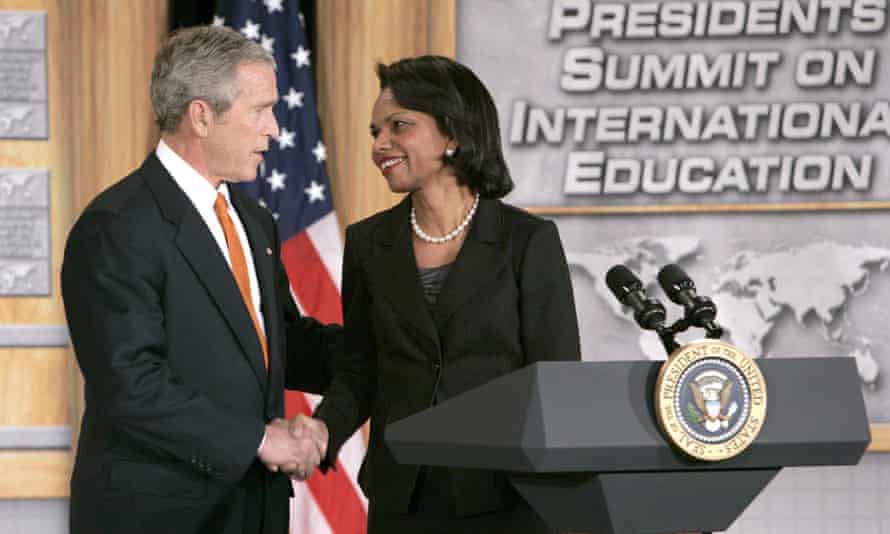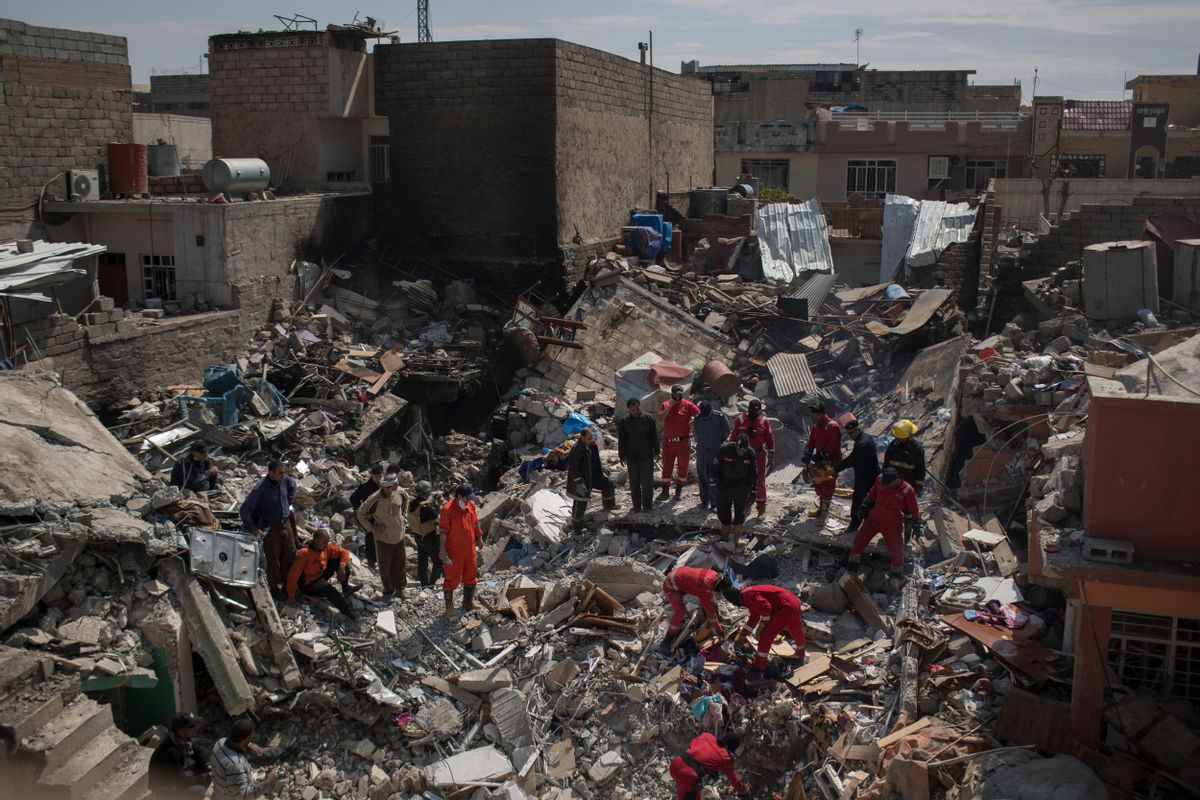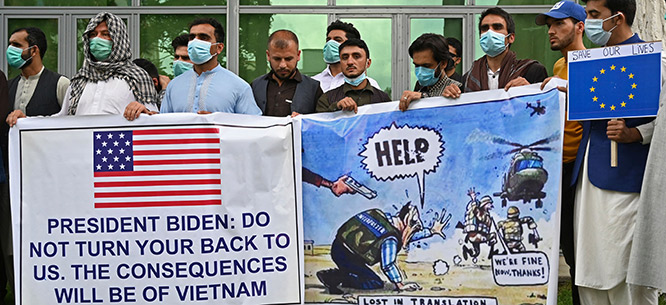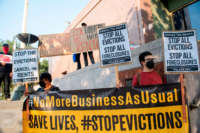Censorship comes in many forms. One of [them] is a colossal moral indifference to official crimes at the highest levels of our government.
— Ralph Nader, April 17, 2021, Ralph Nader Radio Hour
Disclaimer: This is not a traditional mainstream or even left-stream book review. However, Steven C. Markoff’s book does play as the impetus and linchpin to my essay, more of an analysis/reaction to his book. I give The Case Against George W. Bush, high marks. Read Steve’s book. Press your respective legislators to push for an investigation of W.’s crimes. Markoff sets out in the book about how those crimes were committed. I reference those. He completes his case: The evidence is there to prosecute and find guilty the 43rd President of the USA, George W. Bush.
Nader’s Raiders of the Lost Warriors
I was hitting the old Ralph Nader podcast a week ago when I stumbled upon Steven C. Markoff’s book, The Case Against George W. Bush. Nader had Markoff on his podcast, and both talked about the crimes of W Bush, and even more pertinently, the lack of a criminal case against George W. Bush, as well as the crickets in the so-called liberal media (SCLM) as well in the left press concerning Steve’s book.
I quickly emailed Steve for a copy of his book to review, and he came back at me with a PDF of this book which, as I have stated, has been iced out of mainstream media: no interviews, no reviews let alone getting Steve into a room one-on-one, or onto a Zoom call with other guests to parse his well-researched, well-quoted book on the crimes of George W. Bush.

Of course, those crimes are more than crimes of omission, or crimes of secret rendition and torture sites, or the crimes of Abu Ghraib “prison” and Guantanamo. The crime was more than just all the lies about WMD’s and Saddam murdering babies. The big crime was Bush and his Regime of psychotic sociopaths of the neocon variety completely derailing valid, active and clear intelligence that Osama bin Laden was about to make a huge fiery asymmetrical splash on the world stage.
Markoff lays out the daily briefs, the back and forth communiqués, the speeches Bush and others on his team made which all provides evidence of what “we” know about Osama bin Laden. The entire gambit goes back to the Soviet Union’s role in Afghanistan, then with Carter, Reagan, Bush Senior, Clinton and leading up to the ex-governor of Texas, W Bush.
Carter Doctrine 25 years before 9/11
Unfortunately, Jimmy Carter’s man got the Soviet Union and then USA, all tangled up in Afghanistan.
The best way for us to understand Afghanistan is to look at the record of American involvement going back four decades and to look at the record requires a reexamination of President Jimmy Carter’s national security advisor, Zbigniew Brzezinski. From the start, U.S. policy formation surrounding Afghanistan has lived in a realm of magical thinking that has produced nothing but a catastrophe of nightmarish proportions. Brzezinski impacted the future of American foreign policy by monopolizing the Carter administration in ways that few outside the White House understand. In his role as national security advisor he put himself in a position to control information into and out of the White House and when it came to Afghanistan – to use it for whatever purposes he saw fit.
“Brzezinski was an obsessive Russia-hater to the end. That led to the monumental failures of Carter’s term in office; the hatreds Brzezinski released had an impact which continues to be catastrophic for the rest of the world.” Helmer wrote in 2017, “To Brzezinski goes the credit for starting most of the ills – the organization, financing, and armament of the mujahedeen the Islamic fundamentalists who have metastasized – with US money and arms still – into Islamic terrorist armies operating far from Afghanistan and Pakistan, where Brzezinski started them off.”
— ‘Magical Thinking’ has Always Guided the US Role in Afghanistan by Paul Fitzgerald and Elizabeth Gould
The Clinton “team” briefed the incoming George W. Bush “team” before his January 2001 inauguration about al Qaeda and Osama bin Laden. For the younger Bush, he repudiated the evidence trail from so many intelligence sources. His eyes were on Operation Iraqi Freedom, but first called, O.I.L, which was propagated by Jay Leno incessantly after it was blurted out from the source:
On the afternoon of March 24, 2003 days after the U.S launched missiles at Baghdad to start the illegal war, White House press secretary Ari Fleischer held a press briefing. After a few minutes, a couple of sentences into the briefing, he verbally stumbled on the name of Bush’s war, stating, “Operation Iraqi, uh, Liberation.”
Calling it “Operation Iraqi Freedom” officially is just more War is Peace, Lies are Truth bullshit. And that 2001 invasion of Afghanistan ― “Operation Enduring Freedom” – is yet more of the PT Barnum spin, all catalogued in the annals of United States Central Command and U.S. Army War College.
Trail of Tears, Trails of Evidence
Markoff’s book is a straightforward record of myriad published records – taped speeches, newspaper articles/Op-Eds, sections from books, redacted memos and top secret records. As a buttress to the asymmetrical history of what happened leading up to and during the September 11, 2001 attacks and subsequently all that went wrong in the Middle East, this upcoming 20th anniversary of 9/11, Markoff’s book should be required reading.
But reading isn’t enough for just consuming Markoff’s book, and reading it is not enough for those of us who have been fighting the wars, those in Iraq and Afghanistan, as well as all the others. What we need is a truth and reconciliation hearing for all those murdered in the September 11 attacks (around 3,000) as well as the countless hundreds of thousands (several million some estimates determine up to today) killed when the USA bombed and razed Iraq.

Remember that famous photo of Bush reading about a goat to kids in Florida:
On the morning of September 11, 2001, Bush was at Emma E. Booker Elementary School in Sarasota County, Florida, reading “My Pet Goat.”
Oh, his dedication to inner-city first graders and listening to them recite the goat story is golden. Earlier, Bush had been on the way from his hotel to the school in his motorcade when it was reported to him a passenger jet had crashed into the North Tower of the World Trade Center at 8:46 a.m. Old commander in Chief Bush believed the crash was an accident caused, perhaps, by pilot error.
That old goat, man, what a story, so much so that when Andrew Card, the White House chief of staff, entered the classroom at 9:06 to tell this president a second airplane had struck the South Tower and that the nation was under attack, Bush stayed on his duff for seven more minutes, following along as the children finished reading the book.
“Class Goat”
Goat may be an old West Point term for the man/woman graduating last in his/her class, but one infamous George the Goat from the Army Academy is none other than George Armstrong Custer.
Unfortunately, the proverbial goat in America’s eyes is the million people murdered and millions more suffering because of the attacks on Afghanistan and Iraq. Steve’s book lays out the three legal frameworks or cases for prosecuting Bush (and solely Bush, not Bush and Company LLC) for crimes against humanity (in Iraq and Afghanistan) and Bush’s own responsibility for those several thousand who died on that fateful day, September 11, 2001.

Here’s part of a blurb on the book’s web site, Rare Bird Lit:
Steven C. Markoff presents sourced evidence of three crimes committed by George W. Bush during his presidency: his failure to take warnings of coming terror attacks on our country seriously; taking the United States, by deception, into an unnecessary and disastrous 2003 war with Iraq; costing the lives of more than 4,000 Americans and 500,000 others; and breaking domestic and international laws by approving the torture as means to extract information. While Markoff lays out his case of the crimes, he leaves it up to the reader to decide the probable guilt of George W. Bush and his actions regarding the alleged crimes.
Casualties of War — Truth, Honor, Duty to Protect
I had cut my teeth as a reporter in El Paso and elsewhere covering and following that other container ship of lies – Reagan’s crew of felons and thugs who philandered the American public with their special form of Murder Incorporated in Central America, and notably, Nicaragua. Or the illegal invasion of Panama under George H. W. Bush. Oh, those invasions, coups, clandestine bombings, proxy wars, incursions, secret operations, PsyOps.
I even ended up “down south,” in Costa Rica, Guatemala and Nicaragua running into all sorts of odd fellows in the “drugs for guns” continuing criminal enterprise involving some of this country’s more nefarious “diplomats” and “generals” and CIA/NSA scum. Oh, those yellow belly Contras, murdering civilians and bombing schools and clinics for Reagan and Company. Those freedom fighters, AKA, the biggest lying cheats in recent times in Central America, Los Contras.
And the dead horse isn’t dead, and another author, like Markoff, just couldn’t buy the bs on those Contras:
Thus, in his 2012 book, The Manufacturing of a President, Wayne Madsen claims, based upon his numerous intelligence sources, that the CIA and Mossad have both been funding these rearmed Contras, and that they have been shipping these Contras arms over both the Honduran and Costa Rican borders. He claims also that the Honduran government which came to power through the 2009 coup – a coup which the Obama Administration actively aided and abetted to unseat a leftist government which, by the way, happened to be friendly to Daniel Ortega – has been key to helping both support the Contras as well as to provide a staging ground for the covert operations to bring down the Sandinista government. In other words, Honduras is playing the very same role it did in the 1980s, and the US-backed coup in 2009 – a mere 2 years after Ortega was elected – was crucial to this role.
— Dan Kovalik
Of course, the Bush Family Legacy was also all written over that fiasco, and again, it was easy for me to continue my penchant for understanding how rotten the United States is as I am the son of a Vietnam War regular army veteran, who put in 31 years in uniform.
Lords of War, the Racket that is General Smedley Butler’s war warnings. Or Gary Webb, killing the messenger, the same CIA-infused Washington Post, New York Times and LA Times, to just name a few of the publications that corrupted the real work of Webb uncovering that entire drugs for guns Mafiosi.
Robert Parry, deceased now, but a journalist who started Consortium News in 1994, with Webb as one of his big stories on how bad the US government is, and how bad the mainstream media has become.
Here, Parry:
So what I was seeking by the mid-1990s was some solid ground in which to plant a flag for honest journalism, rather than constantly being forced into retreat, pulled by nervous editors and producers looking over their shoulders out of fear of right-wing retaliation. From solid ground, I thought, we could produce journalism that simply assessed the facts and made independent judgments regardless of who might be offended.
In 1995, it was my oldest son, Sam, who suggested the then-novel idea of “a Web site.” I didn’t fully understand what a Web site was and Sam was no techie but he demonstrated extraordinary patience in building our original Internet presence. (Back then, there were no templates; you had to start from scratch.) We married old-fashioned investigative reporting with the new technology of the Internet and began publishing groundbreaking investigative articles.
We followed evidence where it went, even when it flew in the face of the conventional wisdom, such as our work on the 1980 October Surprise issue of whether Reagan and Bush went behind President Jimmy Carter’s back during his Iran-hostage negotiations, much the way Nixon had in sabotaging Johnson’s Vietnam peace talks in 1968.
Not only did we present our own original work but we buttressed investigations by other serious journalists, such as Gary Webb of the San Jose Mercury News when, in 1996, he revived Ronald Reagan’s Contra-cocaine scandal. When the major newspapers set out to destroy Webb and discredit his revelations, Consortiumnews was one outlet that took on the New York Times, the Washington Post and the Los Angeles Times.
Yes, we were outgunned. Despite showing that Webb was not only right but actually understated the problem of Contra-cocaine trafficking, we still could not save Webb from having his career destroyed and then watching the big newspapers essentially high-five each other for having helped cover up a serious crime of state.
The Three Crimes of the POTUS #43 (Secret Service called him Trailblazer)
I am not going astray here, kind reader. What Steven talked a lot about on the Ralph Nader podcast was how that same media, the So-called Liberal Press, has virtually gone silent on his book, a type of passive censorship that can eat at the soul of any author.
In reality, the “case against Bush” is the case against mainstream media/press and their close ties to not just the chambers of power, but within their “embeddedness,” inside the ranks, as well as their allegiance to, and participation in, the national security state’s various bureaus of hit men and hit women.
When I finished the book, I offered the book to everybody that I had quoted, which was… around ninety authors. I offered it to Condoleezza Rice, I offered it to Dick Cheney, I offered it to the [George W.] Bush [Presidential] Library. I haven’t heard from one person about the book.
— Steven Markoff stated on Nader’s show.
Interestingly, Markoff incorporates Richard Clarke’s words as a preface to this book. Clarke actually strips culpability from Rumsfeld, Cheney, and others laying the blame on Bush personally. Here, early in Markoff’s book, Clarke puts it clearly in his mind.
While I may be considered by some to be prejudiced in my judgment, there are facts that any objective observer must accept.
• First, Bush ignored warnings about the serious threat from Al Qaeda prior to 9/11.
• Second, Bush ordered the invasion of Iraq in violation of international law, when Iraq had been uninvolved in 9/11 and offered no imminent threat to the United States.
• Third, Bush authorized the use of torture and denied prisoners due process, both acts in violation of international law.
Note that in each case I say that Bush did these things, not the Bush administration. There is a revisionist school that seeks to place the blame on Bush’s vice president, Richard B. Cheney. While there can be little doubt that Cheney encouraged Bush to take many of these actions, it is not true that the president was merely a tool of a mendacious and scheming subordinate.
The evidence is now clear that Bush agreed with his vice president and knew full well what he was doing. He was an enthusiastic participant, a believer in the war on terror and the war on Iraq. It is true, however, that he did not master or manage the details of either war until the last few years of his eight-year presidency.
— Richard A. Clarke, in the Forward of Markoff’s book.
[In 1992, President George H. W. Bush appointed Richard A. Clarke to chair the Counterterrorism Security Group and to a seat on the United States National Security Council. President Bill Clinton retained Clarke and in 1998 promoted him to the National Coordinator for Security, Infrastructure Protection, and Counterterrorism. Under President George W. Bush, Clarke initially continued in the same position and later became the special advisor to the president on cyber security. He left his government position prior to the US invasion of Iraq in 2003.]
Markoff uses Clarke’s book, Against All Enemies: Inside America’s War on Terror, as a touchstone of sorts. That was in 2007.
Importantly, Clarke had the necessary government background, involvement, and position to know about what he wrote. When I finished Clarke’s book, I was shocked. Could Bush have really disregarded threats of bin Laden and Al-Qaeda prior to 9/11? If so, was there a compelling reason that Bush spent his political capital and energy going after Hussein? Could it be that George W. Bush’s Iraq War was about oil?
It occurred to me that while Clarke seemed knowledgeable about terrorists, 9/11, and the run up to our 2003 invasion of Iraq, he was just one person, and his knowledge was limited to what he had personally seen and learned.
I thought that if I combined details from Clarke’s book with related information from other diverse sources with inside or special knowledge of those times and places, that combined information could produce new and clearer insights about 9/11 and the Iraq War. I then set out to find what additional facts and information were available on those and related topics.
— Steven Markoff, The Case Against George W. Bush
Torture, Rendition, Yellow Cake, WMD’s
I remember protesting U.S. Attorney General Alberto Gonzales June 27, 2007, in Spokane, when he showed up to talk about his department under Bush. Many of us were there to protest publicly Gonzales and the Bush administration, for many things, including that 2002 memo written by Gonzales that said Bush had the right to waive anti-torture laws and treaties that protect prisoners of war.
Oh, the long arm of the “law” that Wednesday afternoon took a good friend down to the ground, arborist Dan Treecraft. He did nothing wrong, but Dan along with another person, was arrested for public disturbance.
I was there with students of mine from two community colleges where I taught, and alas, even those two respective presidents and chairs of the department where I taught thought they had the right to tell a faculty member what he could and couldn’t do as part of a class assignment on “what it’s like to come out and protest a representative of your/our government who states torture is okay.”
Ironically, he was in Spokane to talk about “gang enforcement,” and Gonzales wasn’t alluding to the biggest continuing criminal enterprise Gang called the United States of America.
Steve’s book is a guide, a probable pathway for lawmakers, voters, and others, including the Press, to ratchet up the attention on George W. Bush the War Criminal, and to put to rest the fawning and ameliorating reputation of Bush as The Painter (sic) Friend of Michelle Obama and Ellen.
The kicker in Markoff’s book, says it all, quite damningly, but the reality is that the War is a Racket machine is a very fine tuned complex – Big Business Complex: Burger King, et al; Home Depot, et al; Mercenaries ‘R Us, et al; paint, air conditioning, roads, drywall, vehicles, depleted uranium, fuel, water, food suppliers, et al; all those financial products, that medical complex et al; Big Ag, Big Oil, Big Chemical, Big Prison et al, all in the manner of the for-profit system that is subsidized – welfare-ized – by the US taxpayer. Insanity we have already seen in other wars, and that War on Vietnam, not enough lessons learned there? I’ve been up close and personal with that war, in Vietnam as a civilian, and as a son of a wounded regular Army officer, social worker for wounded veterans, homeless vets and their families, instructor of college writing for Vietnam veterans.
There is no urban legend attributed to those $200 hammers and $600 toilet seats and $2000 each bolts holding the shrouding of Patriot missiles. War is graft central, and how many millionaires and billionaires were created after World War I? Read General Butler’s, War is a Racket.
Evidence of Crimes as Eight Bullet Points
This shit is personal to me, as well, since I have had friends and students coming back from Bush’s wars, full of trauma, fucked up beyond repair, walking PTSD warriors with all that resentment, anger and physical outbursts, and nowhere to go. Here is Steve’s book, again, near the end:
Could the following quote from Payback, a book by David P. Barash and Judith Eve Lipton, in part on the strategy of redirected aggression, explain Bush’s taking our country to war on his misleading and false premises?
“George W. Bush and his Administration were not stooges at all, but quite brilliant. They read the need of most Americans at the time: to hit someone, hard, so as to redirect their suffering and anger [from 9/11]. The evidence is overwhelming that for the Bush Administration’s ‘neocons,’ the September 11 attacks were not the reason for the Iraq War; rather, it was a convenient excuse for doing something upon which they had already decided. Their accomplishment—if such is the correct word—was identifying the post-9/11 mood of the American people, and manipulating this mood, brilliantly, toward war.”
It’s difficult to fathom the extent of the death and destruction caused by George W. Bush’s three crimes, but his legacy of death and destruction are of Olympic proportions.
- An estimated 2,977 people killed by the attacks on 9/11, and thousands more injured or incapacitated that day. In addition, hundreds if not thousands have died and will die early from the toxic air from the collapse of the Twin Towers and its aftermath.
- By one count, there were 4,400 United States personnel killed and 30,000 wounded in the Iraq War as of August 31, 2010; tens of thousands more wounded physically and emotionally crippled by participating in that war; millions of Americans and their families destroyed, devastated, and/or traumatized by 9/11 and Bush’s 2003 Iraq War.
- As many as 650,000 deaths or more from Bush’s Iraq War, deaths that wouldn’t have occurred but for that war.
- Many of our civil rights, and the civil rights of others around the world, were curtailed due to the fear created by 9/11, a fear used by some as an opportunity to weaken our liberties.
- Three to seven trillion dollars in costs to our country from 9/11 and the 2003 invasion of Iraq. Those unnecessary trillions were and will be added to our national debt, a sum burdening our future, the future of our children, and perhaps of generations to come.
- Bush’s torture of prisoners puts American soldiers captured in future wars at greater risk of being tortured.
- The loss of America’s prestige and moral authority from Bush’s unnecessary Iraq War and torturing prisoners will hurt our country in the years ahead.
- Sixteen different US spy agencies on September 24, 2006, concluded that the American invasion and occupation of Iraq since March 2003 has helped spawn a new generation of Islamic radicals— effectively increasing the terror threat in the years after 9/11—and that the Bush administration tortured detainees and that torture wasn’t effective in securing intel otherwise unavailable.
Because America invaded a sovereign country without credible reason and tortured prisoners, how can we say without hypocrisy that other countries shouldn’t do the same to other nations or to us? What moral authority do we have to tell others it is wrong to torture?
— Steven Markoff, The Case Against George W. Bush
Pretty damning, and as I file this review/analysis/rant, that W is at it again, and his stupidity is the stunt, no, smart as a fox, or pet-painting war criminal?

In a People interview, the former president said he told his former secretary of state he had written for her. “She knows it,” said Bush, 74, “But she told me she would refuse to accept the office.”
Bush has been doing press to support the release of his book, Out of Many, One, which features his painted portraits of American immigrants and the stories of their lives.
He called current-day Republicans “isolationist, protectionist, and, to a certain extent, nativist.”
“Really what I should have said — there’s loud voices who are isolationists, protectionists and nativists, something, by the way, I talked about when I was president,” Bush said. “My concerns [are] about those -isms, but I painted with too broad a brush … because by saying what I said, it excluded a lot of Republicans who believe we can fix the problem.”
Shadow of War — Ghosts of the Dead
We’ll see if People magazine interviews Markoff, and gets a bit under the skin of his fine book, all 360 pages, with a decent bibliography and works cited section.
His conclusion:
Regardless of how I or others see what I submit are Bush’s criminal acts, some will continue to argue that while he wasn’t a perfect president, at least he rid the world of the tyrant, Hussein. Yes, he did, but for what reason, by what method, and at what cost?
In addition to the unnecessary deaths and wounding of thousands of brave Americans, hundreds of thousands of others died and were injured from Bush’s unnecessary Iraq invasion. The trillions of dollars Bush’s war has cost has and will continue to be added to our national debt. A debt saddling our future.
In conclusion, I believe the evidence in this book shows Bush’s three crimes were reckless, dishonest, and tragically unnecessary.
I rest my case.
— Steven Markoff, The Case Against George W. Bush
Of course, there are gross inaccuracies when it comes to US-induced casualties, and the first casualty of war is truth, for sure:
Of the countries where the U.S. and its allies have been waging war since 2001, Iraq is the only one where epidemiologists have actually conducted comprehensive mortality studies based on the best practices that they have developed in war zones such as Angola, Bosnia, the Democratic Republic of Congo, Guatemala, Kosovo, Rwanda, Sudan and Uganda. In all these countries, as in Iraq, the results of comprehensive epidemiological studies revealed 5 to 20 times more deaths than previously published figures based on “passive” reporting by journalists, NGOs or governments.
Taking ORB’s estimate of 1.033 million killed by June 2007, then applying a variation of Just Foreign Policy’s methodology from July 2007 to the present using revised figures from Iraq Body Count, we estimate that 2.4 million Iraqis have been killed since 2003 as a result of our country’s illegal invasion, with a minimum of 1.5 million and a maximum of 3.4 million.
— Medea Benjamin and Nicolas J.S. Davies, March 19, 2018

[Civil protection rescue teams work on the debris of a destroyed house to recover the body of people killed in an airstrike during fighting between Iraqi security forces and Islamic State militants on the western side of Mosul, Iraq. (AP Photo/Felipe Dana, File)]
For Markoff, it’s the lives that were destroyed by Bush. That is the echo in his words, and the ghosts of those murdered are the shadows between the lines in The Case Against George W. Bush.
Roots of Zionism and U.S. Liberty to Iraq and Now Iran
Alas, I am ending this analysis/response to Markoff’s book, The Case Against George W. Bush, by slogging through another quagmire, and then some reference to books on just who was lobbying to attack Iraq. We have Markoff trying to open up a case against W. Bush, and his book is clear, focused, not one we’d expect in the pantheon of history books or investigative research/journalistic screeds.
Some writers, thinkers, educators and journalists (such as myself), however, were already looking into the scope of this terror campaign, the implications of US Patriot Act, the entire mess that is Israel’s murderous mucking about in the Middle East with Israel-Firster American corporate heads, administration wonks, politicians and more clandestine and nefarious actors behind the scenes, supreme puppet masters and Svengali types.
All those Israeli wars led to the destruction of Lebanon, Syria and the biggest obstacle at the time, Iraq.
And, here I go again, tangentially putting more fuel into the fires that immolated Iraq and which have blazed through the Middle East before and during and since W. Bush and his Klan invaded the Middle East.
Here, I reference a recent piece by Timothy Alexander Guzman who briefly alludes to the AIPAC/Israel/Israel-firster connection to the invasion(s) of Iraq in his piece, “The Prospect of a Major False-Flag Operation in the Middle-East Grows by the Day: Remembering June 8th, 1967 the Day Israel Attacked the USS Liberty: “It’s was all part of the long-term plan and Iraq was part of that plan, in fact, the most powerful lobby in Washington is AIPAC and the Bush neoconservatives including Paul Wolfowitz, Richard Perle, Bill Kristol, Elliot Abrams and others who pushed Washington into a war with Iraq. According to John J. Mearsheimer and Stephen M. Walt, authors of The Israel Lobby and U.S. Foreign Policy AIPAC (American Israel Public Affairs Committee) was a major supporter for the War on Iraq”:
AIPAC usually supports what Israel wants, and Israel certainly wanted the United States to invade Iraq. Nathan Guttman made this very connection in his reporting [in Haaretz, April 2003] on AIPAC’s annual conference in the spring of 2003, shortly after the war started: “AIPAC is wont to support whatever is good for Israel, and so long as Israel supports the war, so too do the thousands of the AIPAC lobbyists who convened in the American capital.” AIPAC executive director Howard Kohr’s statement to the New York Sun in January 2003 is even more revealing, as he acknowledged “‘quietly’ lobbying Congress to approve the use of force in Iraq” was one of “AIPAC’s successes over the past year.” And in a lengthy New Yorker profile of Steven J. Rosen, who was AIPAC’s policy director during the run-up to the Iraq war, Jeffrey Goldberg reported that “AIPAC lobbied Congress in favor of the Iraq war.”
— John J. Mearsheimer and Stephen M. Walt, authors of The Israel Lobby and U.S. Foreign Policy

[Oh, that anniversary, of the attack by Israel on the Liberty, June 8th (1967)]
I suppose this entire mess that Markoff catalogues in his book, as a triumvirate of crimes by George W. Bush, could for me, personally, be summed up, in my mind, with President George W. Bush, speaking at the annual AIPAC conference in May of 2004:
You’ve always understood and warned against the evil ambition of terrorism and their networks. In a dangerous new century, your work is more vital than ever.
Steven Markoff doesn’t go there, for sure, and that is what makes Markoff’s book unique, too: a clean record of the mess and blunder and murderous trail George W. Bush left in his wake as leader of the so-called “free world.”
The post
W’s Chickens Coming Home to Roost, yet the Media Cocks Aren’t Crowing first appeared on
Dissident Voice.
This post was originally published on Dissident Voice.














